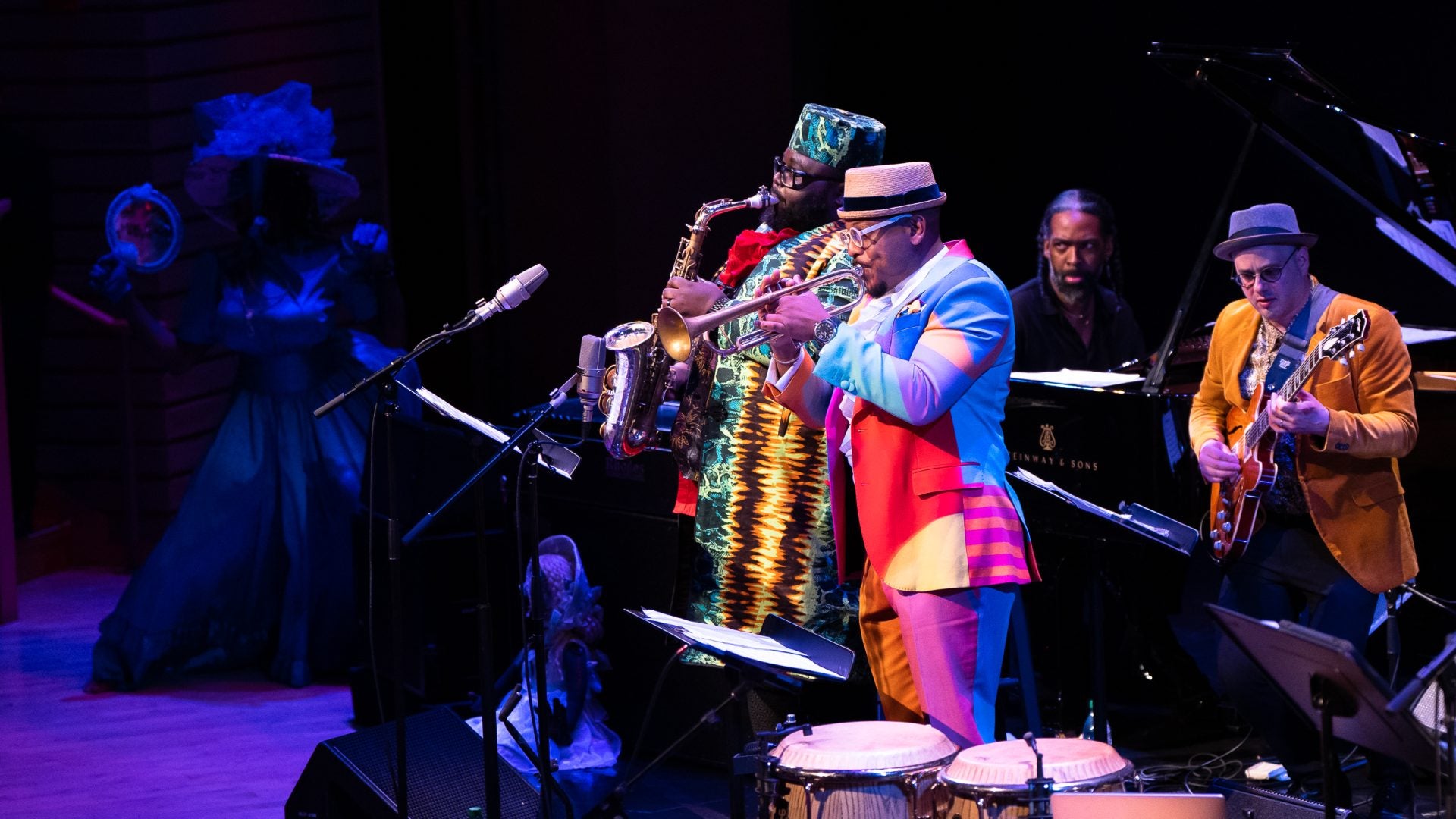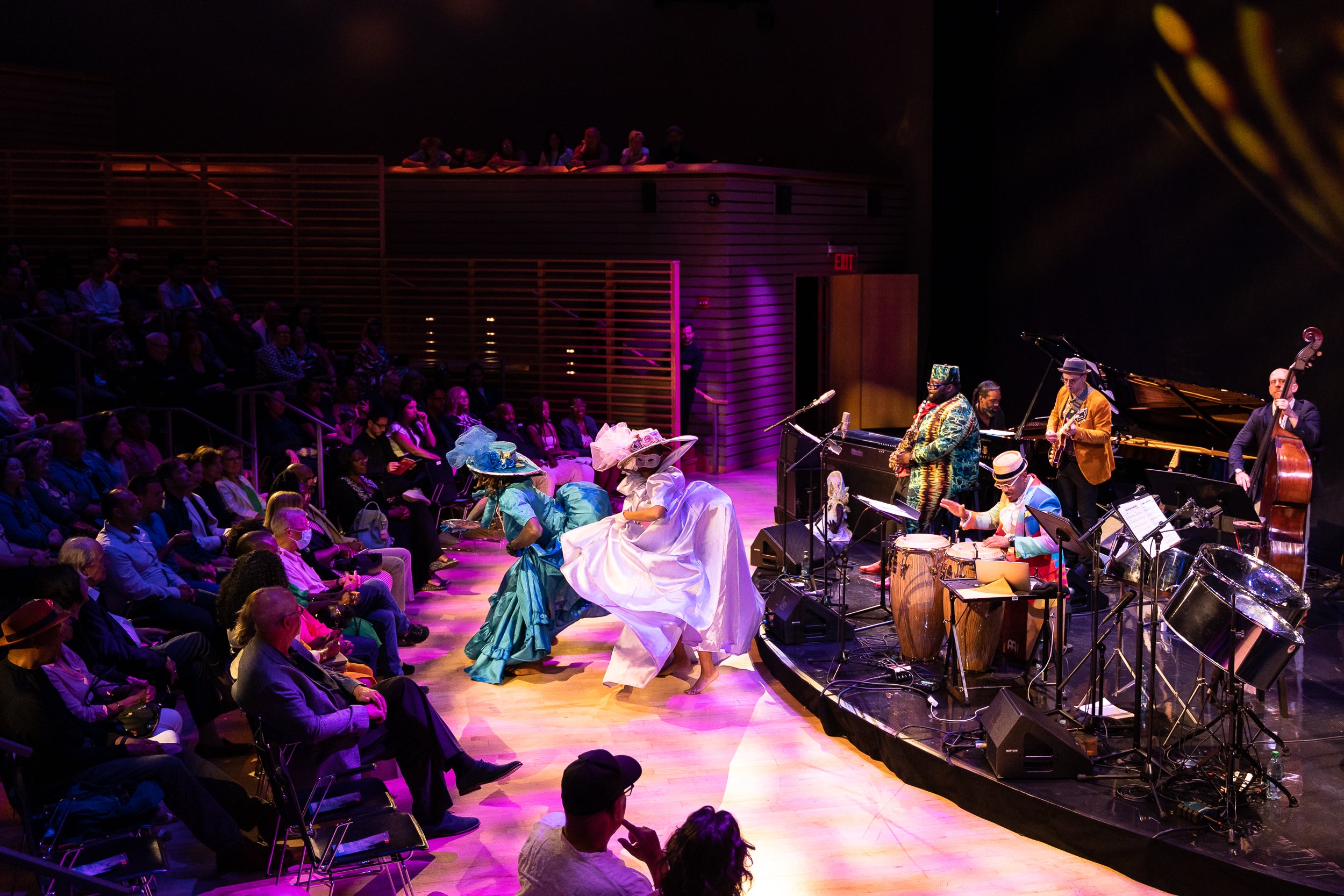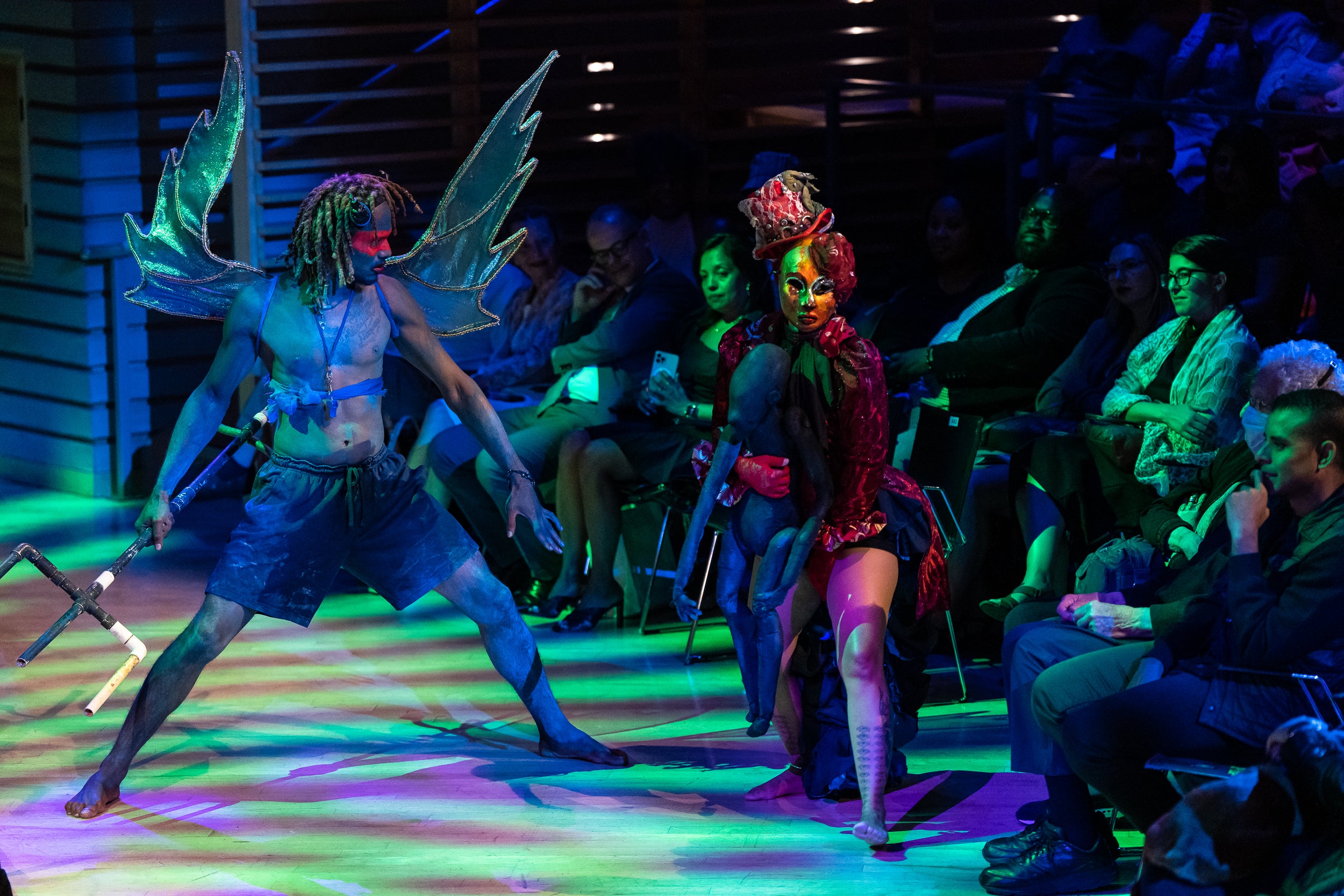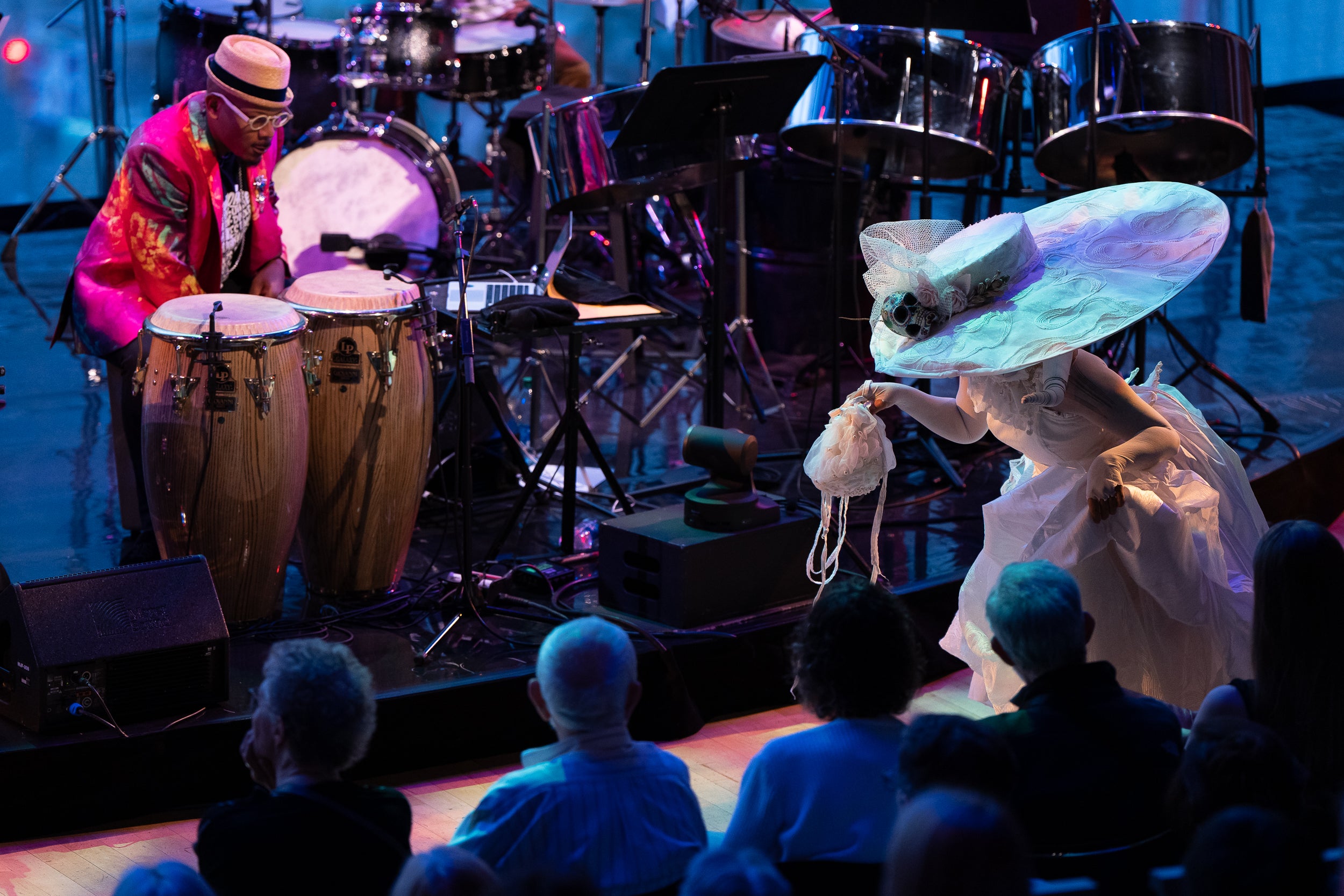
What do you get when you blend smooth, American jazz with the electrifying sights and sounds of Trinidad’s Carnival? Well, thanks to Julliard-trained percussionist and composer Etienne Charles, audiences in New York City got a high-energy, one-of-a-kind concert called “Carnival: The Sound of a People” in honor of Caribbean American Heritage Month.
With traditions and music of the Anglophone Caribbean at its center, the electric show brought the elements of Trinidad’s Carnival to Jazz at Lincoln Center.
“It’s a feast of the eyes and ears. It’s a feast of the imagination,” Charles told ESSENCE just before he debuted the show on June 9 at the world-famous performing arts center.

Charles, a Trinidad native and Associate Professor of Student Music and Jazz At The University of Miami, says he uses music to showcase the connectivity that music creates for people from all walks of life.
“I wrote this music off all of the things I saw [in Carnival], which were movements. It wasn’t just sound. It was movements, it was costumes, it was history, it was stories, it was dance, spoken word,” Charles shared. “So after writing the music and recording, I realized when we perform this music, there has to be an element that can immerse the audience in the stories of Carnival, especially because most of the time my audience is not from the Caribbean.”
He mixes multimedia and traditional carnival characters with a live band, and his original compositions are brought to life with imagery, dancing, and music for several performances over the course of two days. The shows marked the long-awaited debut of “Carnival: The Sound of a People at Lincoln Center,” postponed in July 2020 due to the pandemic.
In the audience, I went from clapping along to the sounds of the trumpet, steel pan, drums, and more, to dancing stageside with the talented performers who portrayed traditional carnival characters, such as The Fancy Sailor and the Jab Molassie (Molasses Devil).

After New York City, Charles took the show to Florida with performances at Pérez Art Museum in Miami.
“We’ve done it in San Francisco; we’ve done it in LA. And you know, for me, I want to take it everywhere, but also everywhere that we have young Caribbean people… because it’s a great way for young Caribbean people to learn their culture, a very important part of their culture. It’s probably the most important and formative period in the Caribbean after the emancipation of the enslaved,” Charles says.

When asked what his message to young musicians would be on finding their way and telling their own stories, Charles said, “Hone your craft, one, and learn your history. Those two things will teach you everything you need to know.”
“If you’re honing your craft, you’re gonna find the right mentors on that side, and if you’re learning your history, you’re gonna find the right mentors and guides for that… once you learn those things, you can’t go wrong,” he says.